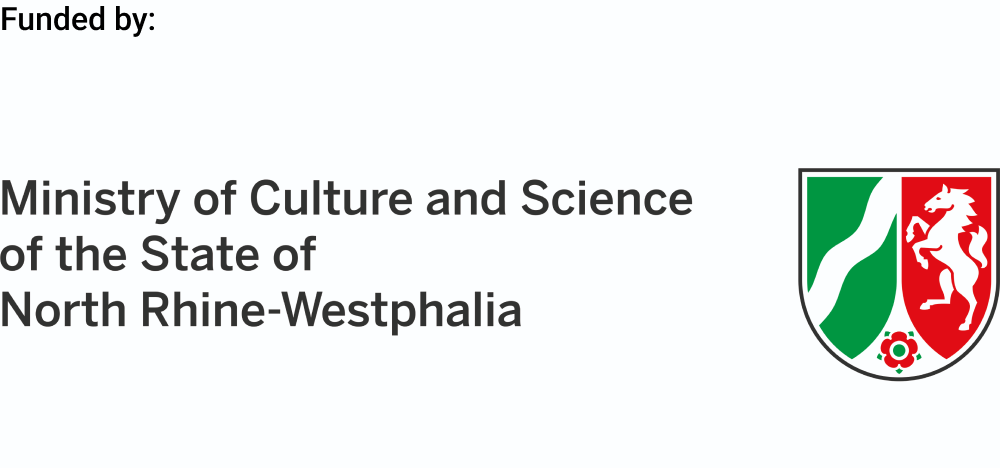Steffen Korthals, also known as Dash, does a lot around electronic music. In the questionnaire he tells us the stories behind his favorite places in the Ruhrpott and how the region, as well as club culture, is freeing itself from its stigmas.
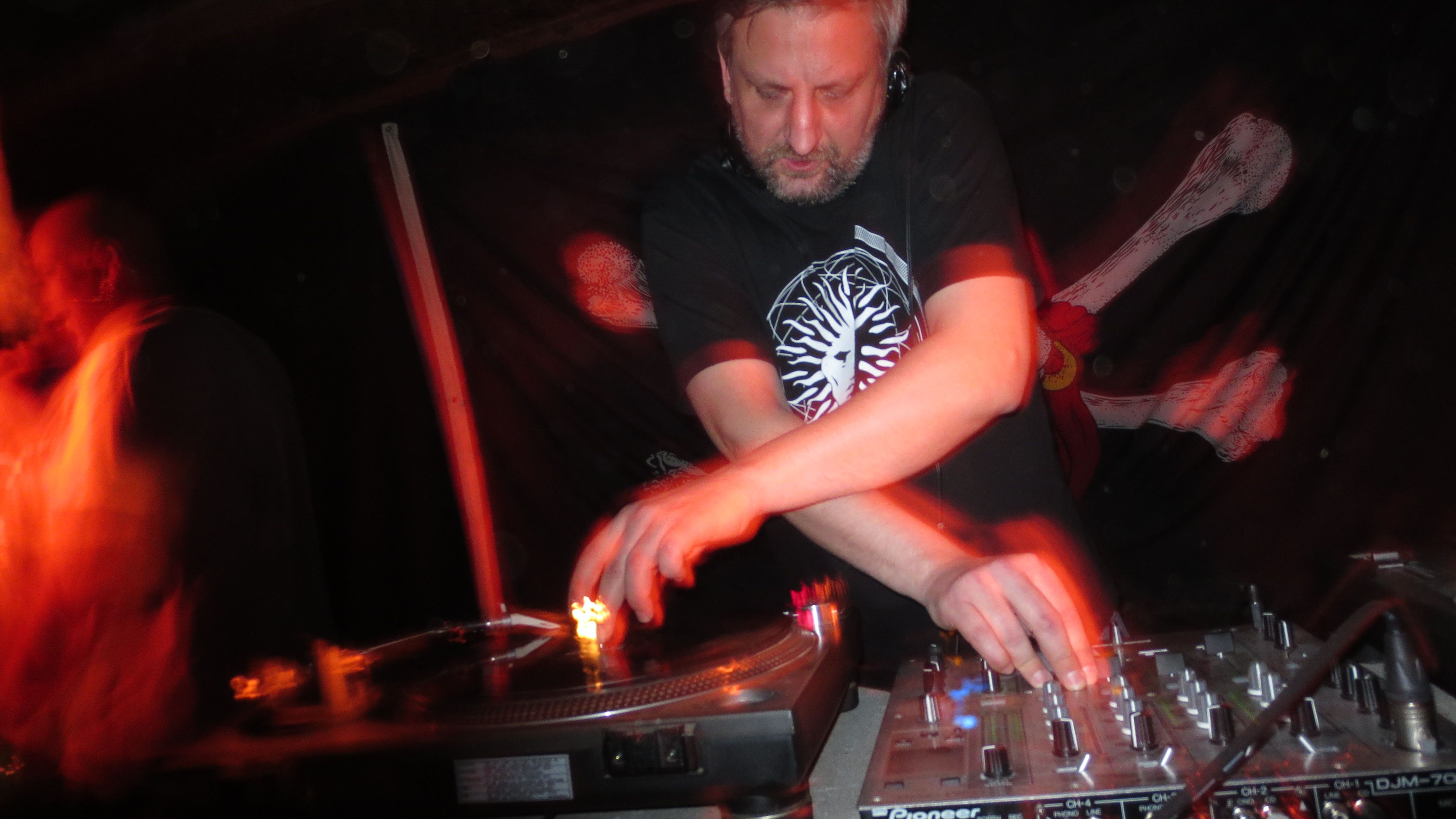
Our questionnaire

Our questionnaire
Our questionnaire
Urban discovery with: Dash
Name:
Steffen Korthals a.k.a. Dash
Age:
47
Birthplace / Place of residence:
Dortmund / Dortmund
Profession:
DJ, Journalist, Organizer, Radio Host, Author, Booker, Lecturer
Links:
How would you describe yourself and your work to an alien?
For over 25 years I've been romping around the club culture of the Ruhr area as a DJ as well as radio host, author, booker and lecturer. My club sets are centered around basslines, energy and emotions, in which I try to roam diversely through dubplates, new releases, classics and contemporary sounds of club culture. I'm best known as Dash for my drum and bass and jungle sets at festivals and clubs, but occasionally I enjoy playing other styles of music (e.g. techno, house or jazzy-soulfull sounds). I try to use my piano and conductor training not only in the DJ mix, but also in the interaction with live instruments and orchestras. Since the first festival edition, I have been allowed to be resident and floor curator at the Juicy Beats festival and bring my knowledge to event and club programs (e.g. Subport, Soul In Motion Germany, Rotunde Bochum) and I am associated with various labels as well as music and art collectives (Original Key, Bassassassins, All The Time). As a journalist, lecturer and author (e.g. Das Filter, Groove Magazin) I publish texts as well as radio broadcasts (Deutschlandradio, SWR/SR, Rua FM Algarve, eldoradio*) and curated mixes. I lecture as an expert on club culture, urban life, society and culture at events and in various media (e.g. HMKV, Folkwang Institute for Pop Music, Jazzclub domicil, Dortmunder U). Christopher Braucks wrote about me: "Dash experiences, explores and represents music with fascinating and unconditional dedication. Walking the line between profession, science and passion, he is a renowned DJ, author, journalist, booker, lecturer and vinyl connoisseur." And Mola Mola from Westgefüge texted, "Introducing Dash is not really necessary. He is a booker, radio host, DJ and an icon of the local subculture. With his ear always on the scene and his finger on the pulse, he manages to produce quality over decades, whether in his sets, his radio shows, his events or interviews. Dash stands for the claim to deal with music, to understand its origins, roots and statements and to understand it ultimately not just as the tonal background of hedonistic nightlife culture. In doing so, he always manages the balancing act between thoughtfulness and danceability." Such statements please me, of course, and probably describe better how one comes across than one's own words.
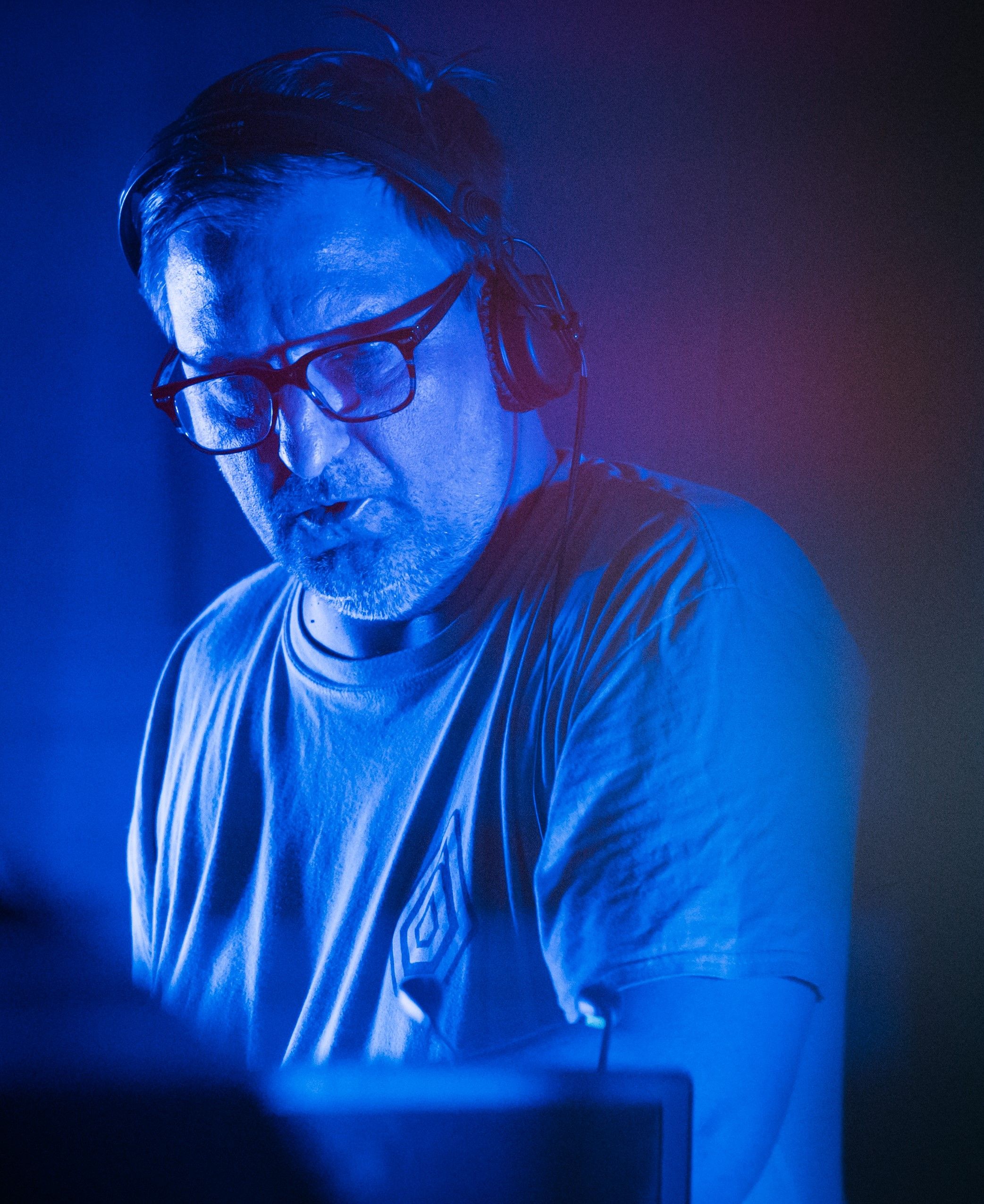
©Daniel Sadrowski
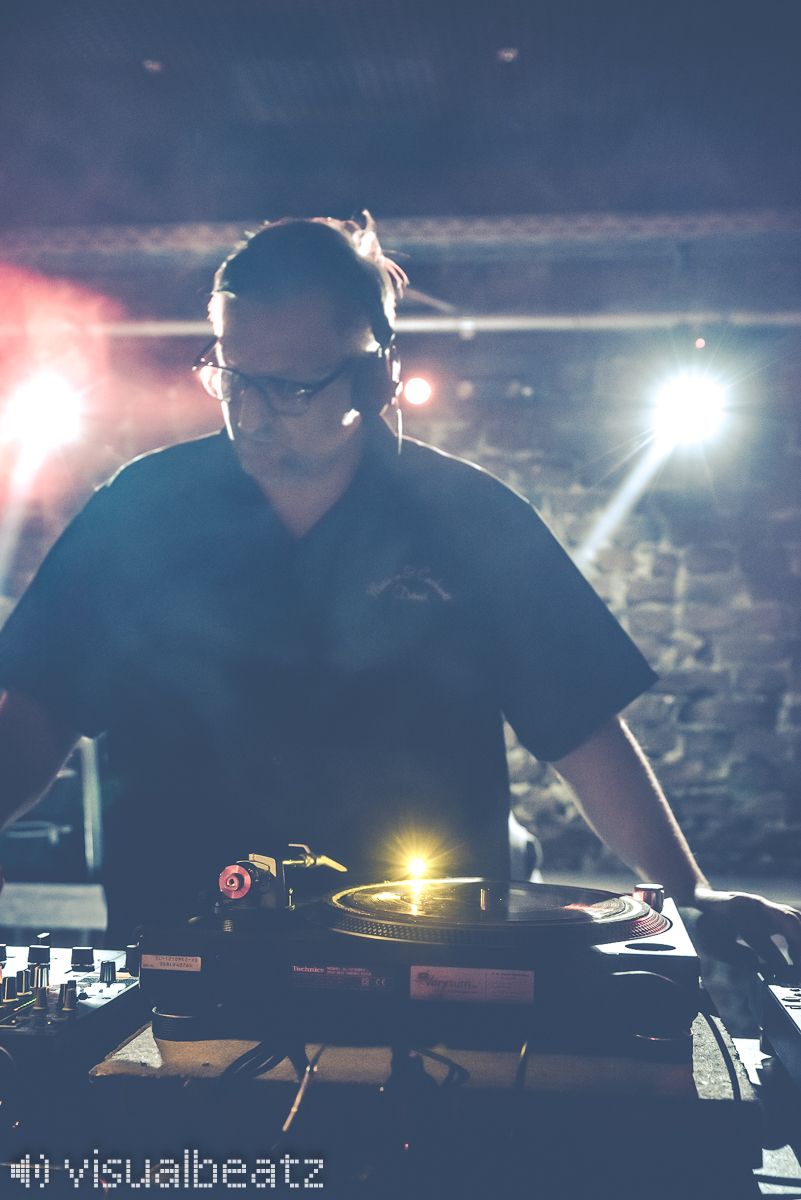
©Stefan Stahlschmidt
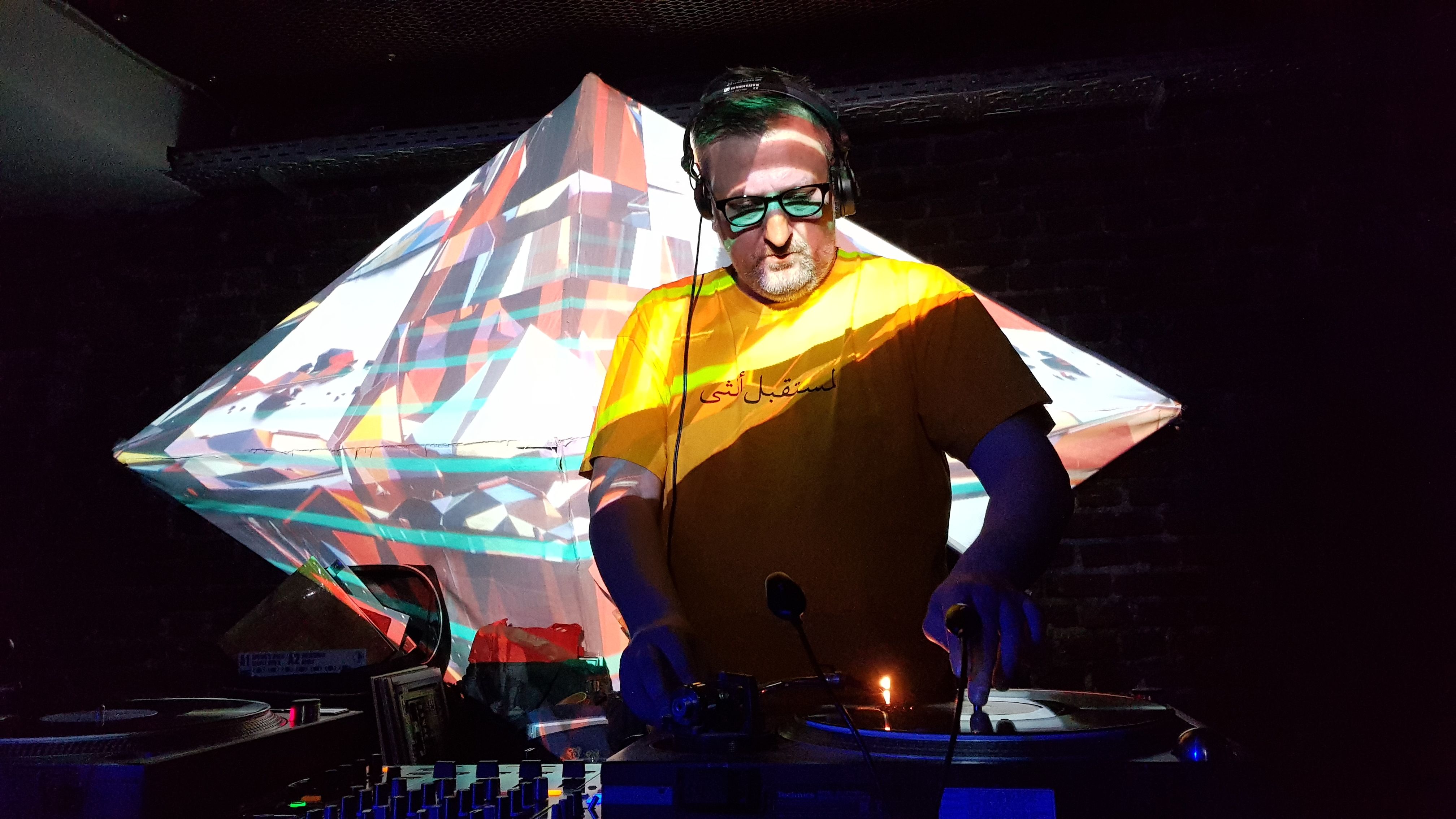
©Nicole Winkelkötter
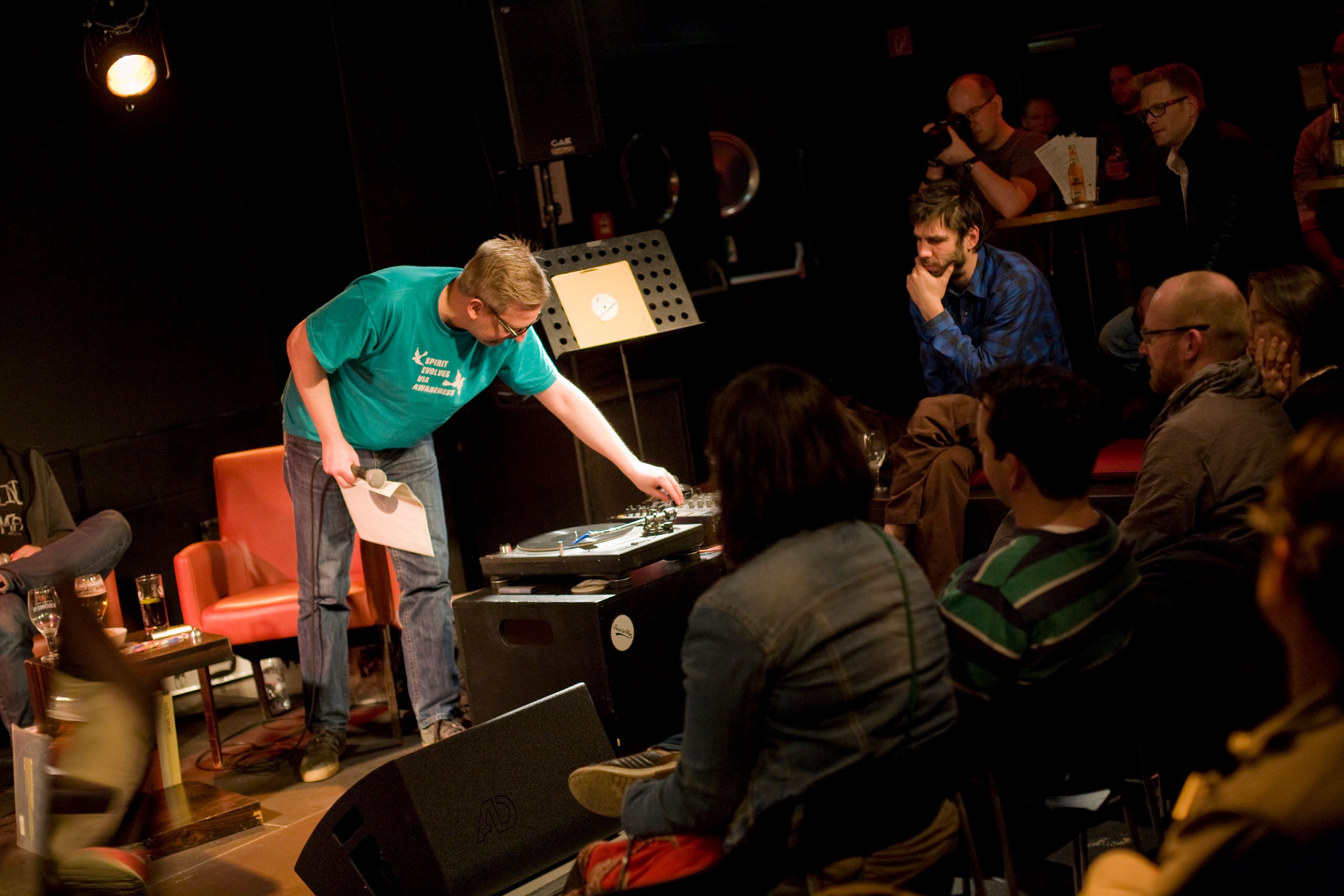
©Andrea Eichardt
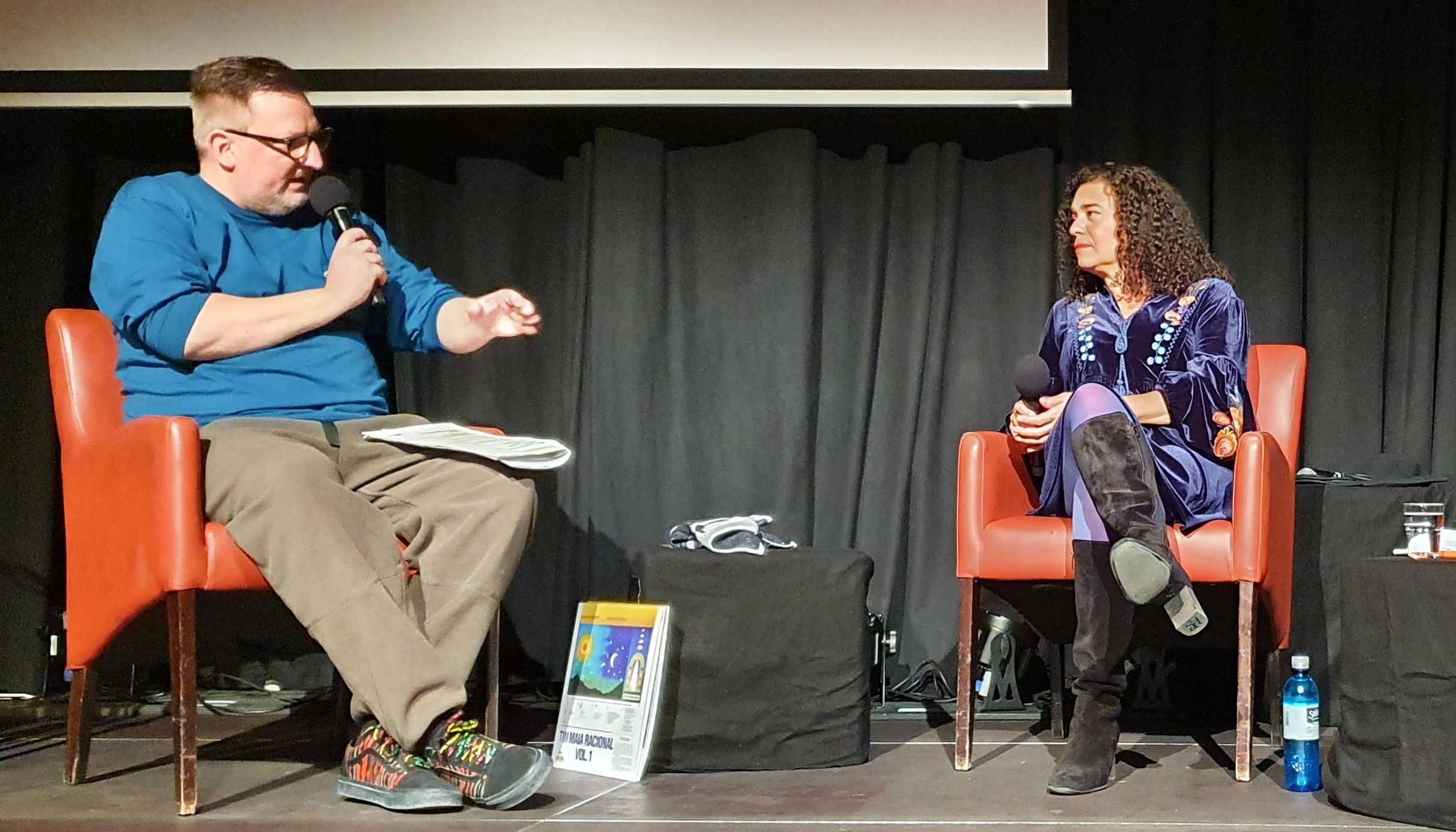
©Nicole Winkelkötter
What is your drive to create art?
Mediation and self-assurance. Like probably everyone, I want to express myself, be accepted, and at best do something relevant. I have been through some unpleasant things in my childhood, youth and afterwards and still have to fight with a few things. Maybe that expresses itself in my music and my approach, which maybe some people can relate to. Of course, every musician says that he is taking people on a journey and wants to tell something. But I actually think about every record and there is a reason why it is in its place, whether it is certain lyrics, a social issue, emotions and a special atmosphere or other contextualizations. Communication is important to me in this. Writing music alone in front of the computer interests me rather marginally. I am open to other opinions, ways of seeing and living and appreciate it when I get a reaction on the floor, in the audience at a lecture, after a radio show or an article. Certainly also because I am often very self-critical and sometimes unsure of myself. Living in a club culture landscape where the successful ventures are often led by alpha males, it is sometimes not easy to score with vulnerability and emotion at (appropriate artistic points). A fan with a handicap always comes extra tens of kilometers on a special bike to my gigs. For him it means something what I do. And for me, something like that means the world! If people leave an evening stronger and better than they came, then it's a success. If I manage to impart knowledge or experiences or create opportunities for other artists in texts, talks or lectures, then I believe I have at least achieved something small.
What do you love most in the Ruhr region in general?
What I love most about the Ruhr region is the many niches that can be found here and the diversity of the people who try to use it enthusiastically and courageously.
Three places in the Ruhr region that you definitely show visitors:
1. Dortmund North Town
I am a child of Dortmund-Nordstadt. Growing up at the intersection of Mallinckrodtstraße / Schützenstraße, when animals were still transported from the harbor to the slaughterhouse; to where the employment office is now. I remember soot-smeared walls and faces, growing up with a self-evident diversity of cultures. No need to get nostalgic - but I know my hood and the changes with and in it. That's probably why I can't get away from Dortmund's Nordstadt and currently live on the axis between Fredenbaumpark (tranquility), Hafenviertel (dynamism) and Münsterstraße (Babylon). I would take visitors for a walk through the multifaceted neighborhood - perhaps starting from Münsterstraße with its many stores, through the allotments, past the Hafenwiese and the basketball court, where I like to gamble, to the pleasantly sleepy Fredenbaumpark.
2. Port of Dortmund
A quick trip to Speicherstraße in Europe's largest canal port before the port redevelopment and gentrification hits! In the neighborhood there are places like Export 33, a beer garden called Umschlagplatz located directly on the water's edge as well as the beach with events and gastro and the ship Herr Walter right next door. Just a few meters away is the art and culture venue Speicher 100 and the location of the music and culture collective Maschinerie, which are currently closed. At many places along the way you will find murals and urban art and within a few minutes walk there is the old harbor office, the rental location Tyde Studios, the Truckerimbiss Hafenkombüse, lots of industrial architecture, warehouses, waterways and the graffiti walls of More Than Words and others to discover.
3. Landscape park Hoheward
The Hoheward slag heap and surrounding area is a very good example of how cultural and industrial heritage can go together without being embarrassing. Situated between Herten and Recklinghausen, one can not only take long walks through nature and forests along the plateau or enjoy the spectacular view of some Ruhr cities and industrial plants, the beauty and also the ugliness of the Ruhr area, but with the horizon observatory and the sundial, one can see equally expansive art. I consider the clear and almost meditative place at the sundial with obelisks to be one of the most spiritual places in the Ruhr area towards evening and on calm days. A descent to the collieries located at the slag heap and especially to the old mining settlement Hochlar are definitely worthwhile for visitors to the Ruhr area.
What makes the arts and culture scene here so special?
I especially appreciate that the art and culture scene finally recognizes club culture as a member socially and culturally, which is shown, for example, by exhibitions with events such as hello again (U2 in the Dortmund U), Can't Get You Out of My Head (HMKV) and projects initiated by Neue Künste Ruhr and others. I'm particularly struck by the fact that the Ruhr region often struggles with its self-confidence, although there's much more here than meets the eye. And the Ruhr area doesn't have to be Berlin. Of course it is necessary to look for opportunities, cultural spaces and exciting events. And there are always too few of them. But maybe it's also a problem of visibility, for artists and audience alike. There is so much to discover. Understanding diversity as a strength has started to push more into awareness here, but there is still a long way to go. In general, more open mindness would be a necessary thing for the local scene. Many Ruhrpottler*innen would rather stay in their own city, instead of taking advantage of offers in neighboring places of the metropolis or to experience something different than they always hear and see anyway. I didn't think I'd have to quote Grönemeyer, and maybe I'll go to cliché hell for it, but I guess the time has come: "Where the sun gathers dust, it's better, much better than you think."
In which places can you feel the metropolis of the arts here?
Definitely at the HMKV (Hartware MedienKunstVerein) in the Dortmunder U. Since 1996, the association has been a multi-award-winning and internationally renowned platform for the production, presentation and mediation of contemporary experimental media art that discusses highly topical social, political, economic or ecological contexts in a biting, surprising and important way. HMKV's exhibitions are highly acclaimed regionally, nationally and internationally. I try not to miss any of them and am happy to have been able to contribute to the multifaceted exhibition and event program from time to time.
I also find the projects in public space, exhibitions and events of Urbane Künste Ruhr inspiring and fresh. Not only for people from the Ruhr area always a worthwhile visit, they are equally relevant internationally - fed by exciting perspectives of local and global contemporary artists. The dance and performance pieces at PACT Zollverein and many of the productions at Schauspiel Dortmund breathe metropolitan spirit. Not to mention the Künstlerhaus Dortmund, Essen's Museum Folkwang, the Galerie m in Bochum, the Skulpturenmuseum Glaskasten Marl, the MKM in Duisburg, and the Ruhrtriennale and Ruhrfestspiele festivals in the underrated city of Recklinghausen. I am also looking much forward to the Manifesta 16 in the Ruhr region.
Where/when did you have your best cultural experience?
Documenta is almost always mind blowing and very inspiring for me. But there are also many things in the Ruhr region that have left their mark on me and that I can no longer get out of my head. Spontaneously I think of an exhibition room at HMKV (at that time still between Borsigplatz and the old Ostbahnhof in Güntherstraße), which was painted bright yellow, warm and full of butterfly larvae. Or two gigs at the Tag der Trinkhalle, where the DJ sets turned into full-blown block parties with a colorful bag of kiosk regulars, clubbers and residents. I often have to think of Coldcut's live performance at the Juicy Beats festival, where singer Robert Owens was live on the screen singing the emotional lyrics of "Walk A Mile In My Shoes." Playing twice in prime time at the open-minded fusion festival were highlights. And so many club nights - especially those of the Subport event series in Dortmund's harbor inside Herr Walter's ship, where unfortunately there are no events at the moment due to pandemic, or at the international drum and bass series Soul In Motion in the Rotunde Bochum. "Beautiful" - or let's say impressive - cultural experiences are also always available at the trash film club Buio Omega at Gelsenkirchen's Schauburg Filmpalast.
Where do you like to go out to eat & drink?
I like the small Portuguese restaurant Churrasco in Dortmund's Nordstadt. The team around the family of Sidonio Rodrigues serves in the best sense of the word simple and inexpensive Mediterranean cuisine. Great are the epetadas prepared to the point and presented coherently, as well as Sumol Laranja on the menu, a Portuguese orange soda with pulp in a beautiful bottle. The ambiance is passionate and full of good vibes.
Also classy is Genki Bao & Burger in Bochum, a tiny restaurant with specialties mainly from the western and central Chinese cantons. Here you can find Kimchi, Roujiamo, Genki Burger and especially the delicious filled dumplings, either as a kind of Baozi from East China from the Shanghai and Jiangsu regions (Xiang Long Bao), or in a steamed and fried version (Sheng Jian Bao). The Bao Buns are especially recommended with rice vinegar.
The best parties are ...
... everywhere where people in the Ruhr region unconsciously or consciously feel that we actually all want the same thing: a place to live and a better tomorrow. Such moments usually arise in places of transition, of open-mindedness, in niches, in clubs and alternative spaces of possibility. Space plays a big role, of course, but I believe that it is the people who can relate to it and possibly rise above, resist and spread positivity.
Apart from that, I notice that the best parties take place the day after in the head, precisely when the many impressions sink in, when a feeling of happiness and contentment mixes with exhaustion and calm. These are actually the best moments - no matter if it is after an own performance or a self-organized event or "only" after a visit and a night of dancing in one of the many good clubs here.
If the Ruhr area was a song, this is how it would sound:
Here I like to refer to the Dortmund-based sound artist Denise Ritter. The sound of the pot doesn't get more urban, more direct and deeper than this. If a song is absolutely required, then I recommend one of the local tracks that I played to artists Louis Henderson and Joao Polido in an interview on the sound of the Ruhr in connection with the question of how regional music and club history is shaped by industrialization - listen here.
What's your next project?
In addition to the club and festival gigs, which are getting more difficult in times of Corona, I have more radio shows and projects that - at least and hopefully temporarily - are not necessarily linked to dancing together in one place. The success of the author's show Vinyl Asyl on Dortmund's radio station eldoradio* together with Nicole Winkelkötter will be continued as well as my monthly show on Portuguese radio and the sets at the Club der Republik at Deutschlandfunk Nova. There is another radio request, but I'm not allowed to say anything about it right now. In addition, there are selected streams, e.g. at Wolf-TV. For more talks and sonic lectures I am in research, editing and planning, 2022 will be exciting in this regard. I am also open for opportunities in the cultural field. The virus has changed many things, most of them for the worse. There is a need to rebuild in the cultural rubble; and some buildings will unfortunately collapse again. I just remembered a sentence by Klaus Walter: "What is music? - Everything". For the popular stream Cobra Chamber from the Dortmund Dojo, it will be probably go to one of the Dortmund clubs in early 2022. Again, I can't reveal too much yet. Furthermore the Subport-Crew is looking for a new club as alternative to the, unfortunately just closed for parties inside, ship Herr Walter in Dortmund harbor. Subport is one of the most established, popular and multifaceted drum and bass events in NRW and is to be continued. There are initial plans for this, also on the outskirts of the Ruhr area if necessary. Otherwise, it would be super nice to be able to visit my fans in Portugal again, if travel becomes easier and safer for everyone, and if we could all see each other again soon on the floor or at an event. One love!

